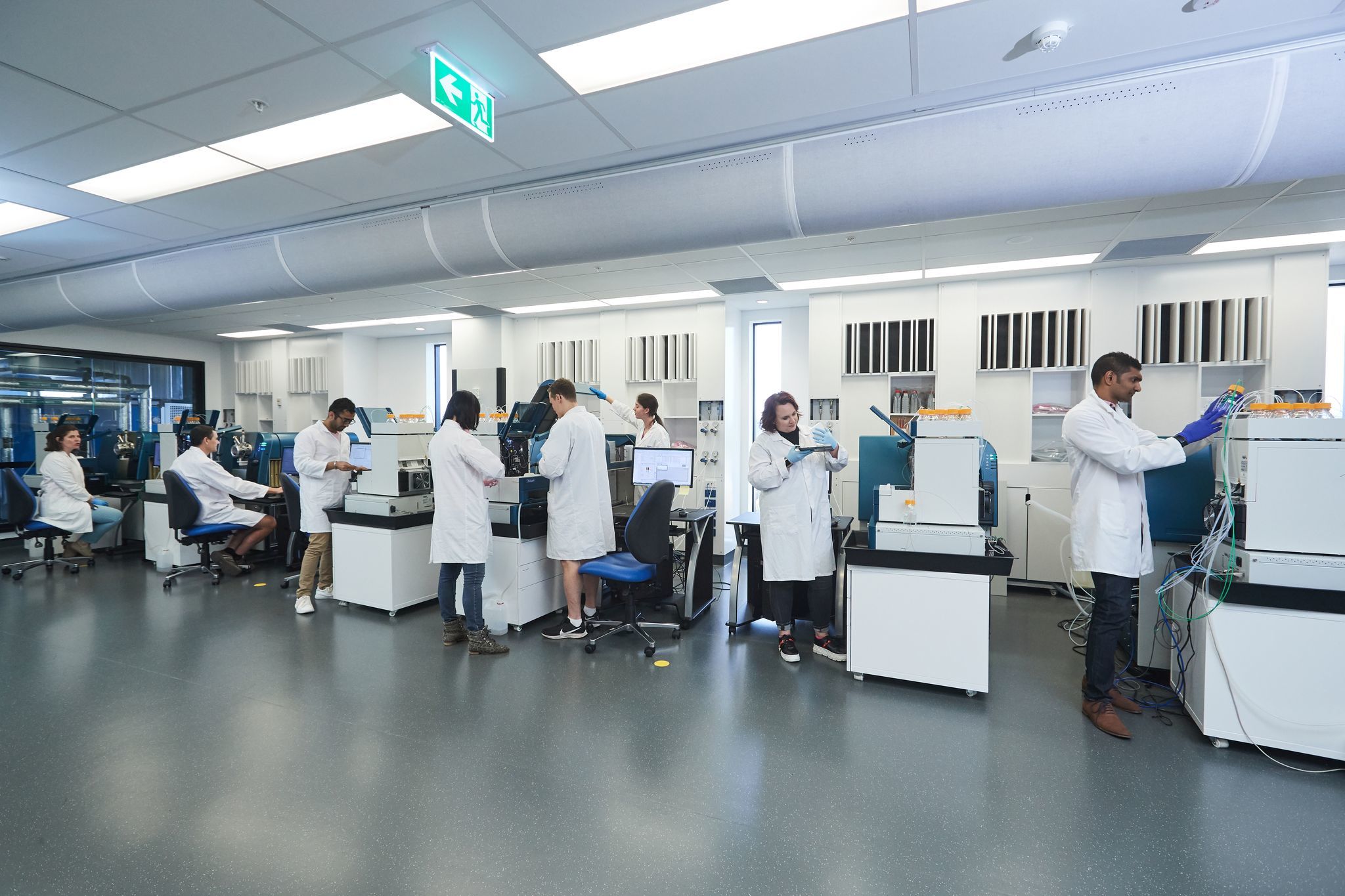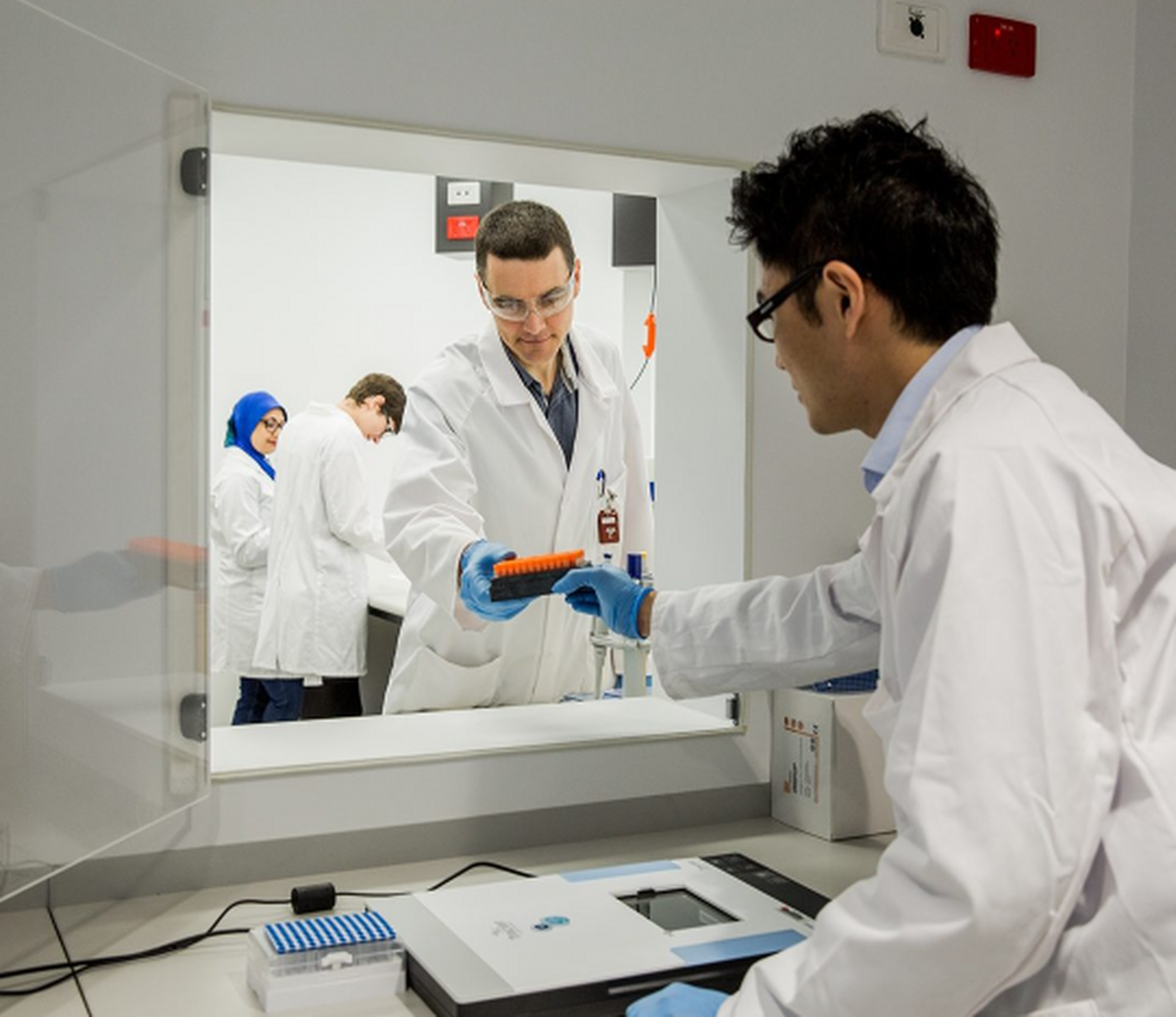The ProCan® team at Children’s Medical Research Institute is developing methods for analysing the proteins in cancers so they can provide cancer clinicians with data that will assist them to tailor treatment for each individual patient.
Early on, the ProCan team made a high-stakes decision about the approach they would take for obtaining high-quality proteomic data. Now they have published two technical studies that demonstrate the value of this approach.
Before a patient is treated for cancer, it is usually necessary for some or all of the cancer to be removed and sent to a pathology laboratory for examination. In pathology laboratories throughout Australia and around the world, the cancer sample is usually processed by preserving or “fixing” it in formalin and then embedding it a block of paraffin – so it is called formalin-fixed, paraffin-embedded (FFPE). After processing in this way, it is possible to cut very thin slices of the cancer (“sections”) from the block and to place them on to glass slides for examination by an expert pathologist.
Another major benefit of this procedure is that FFPE cancer samples can be stored for years or even decades at room temperature, and therefore for little cost, or shipped from one laboratory to another, without any loss of their suitability for further microscopic examination.
The ProCan team decided to focus on developing techniques for analysing proteins in FFPE cancer samples, and to discover if any changes in the proteins may have occurred over time once the tissue has been fixed using formalin. It is well known that when thin FFPE sections are cut and stored, the ability to detect proteins, by a technique called immunohistochemistry, degrades with increasing storage time.

Now a detailed study led by Dr Jennifer Koh, and published in the international journal, “Clinical Proteomics”, has shown that thin sections cut from FFPE tissue blocks, stored for periods of almost a year, and then analysed by ProCan’s methodology yield proteomic results that are indistinguishable from the results from sections that are analysed almost immediately after cutting.
Another study led by ProCan research student, Erin Humphries, and published in the American Chemical Society (ACS) journal, ACS Omega, has shown, astonishingly, that most of the phosphate groups that the cellular machinery attaches to proteins, to dial their activity up or down, are preserved in FFPE blocks. They found that most of these modifications are preserved through the harsh fixation process and are near identical to the same tissue that is rapidly frozen, then analysed.
These results have major implications. First, there are many hundreds of thousands of FFPE cancer samples stored in pathology labs around the world from patients for whom the outcome of their treatment – good or poor - is already known, which can be analysed to find the pattern in the proteome that predicts which treatment will be most suitable. Second, FFPE sections can be sent to a proteomic laboratory like ProCan for analysis without the expense and logistical difficulties of cold-chain shipment, which means that it should be possible to provide proteomic testing when needed regardless of where a patient is being treated.
Dr Peter Hains, ProCan’s Scientific Manager and Proteomics Team Leader said, “These results reinforce the early decision we made to use FFPE tissue. They are a major step towards realising our vision of making cancer tissue proteomic data available for any patient whose treatment plan needs to be tailored based on the proteins in their cancer”.
ProCan researchers Jennifer Koh, Erin Sykes, Jyoti Rukhaya, Asim Anees, Qing Zhong, Roger Reddel, Peter Hains, and Professor Phil Robinson, and collaborators Rosemary Balleine, Chris Jackson and Ben Panizza, from Westmead and QLD, contributed to these studies.
Read the papers here:
https://link.springer.com/article/10.1186/s12014-025-09529-5
